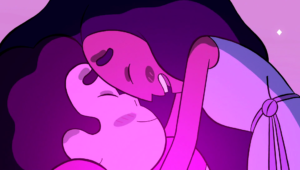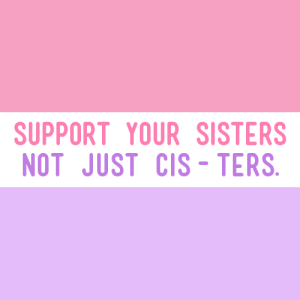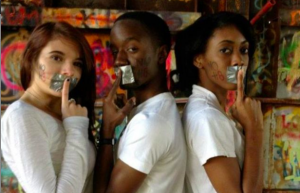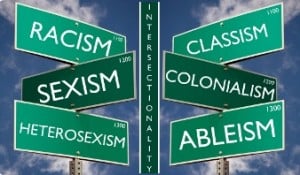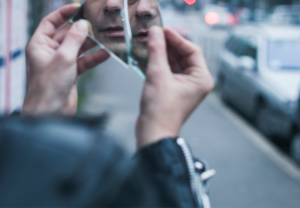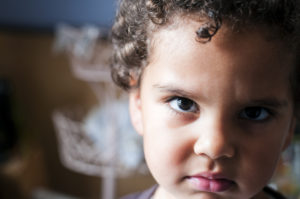Yesterday, I talked about social media for twenty minutes.
Actually, I had a twenty-minute conversation about trolls.
With Ethnic Studies students.
Who had no idea what to do with the combination of their newfound political consciousness and social media and friends from middle school who they never talk to anymore, but who love to post racist comments on their Facebook walls all the time.
This is a common occurrence.
I know because in the past, I’ve had students say, after taking a class with me, things like “I can’t handle racist friends anymore” and “I can’t watch a movie anymore without seeing stereotypes.”
My personal favorite is: “Sometimes everything I know about oppression feels like too much.”
The last one is my favorite expression of exhaustion because 1) I know what that feels like and I bet you do too and 2) it speaks to how self-care – and in fact, life – can be too much for folks who are politically conscious or radicalized (read: woke).
We’ve all seen the self-care lists that ask whether you’ve eaten, slept, or peed today – all of which are super important (or else you’d, ya know, die) – but for the quickly increasing (yay!) numbers of us who are woke, self-care often takes additional forms.
Bubble baths, fancy dinners, or breathing exercises are great – and may, indeed, be part of your self-care (go you!).
But you, like me, might also need to be unfriending a fool, reading fiction instead of The New Jim Crow, or joyfully eating something processed. #ILoveSpamYouCantStopMe
So if you’re the activist, organizer, or community member who tends to do social justice work all day, every day, but is also exhausted all the time (and potentially unhealthy), this one’s for you.
If you’re the one who “gets into it” with family, friends, and even with strangers on Facebook, this one’s for you.
If you’re working 25/8 to to tell folks why that episode of The Mindy Project was fat-shaming, but you still love that she’s a woman of color, this one is definitely for you.
Because self-care is different for us – and it’s high time we acknowledged that.
So the following list is about how our self-care requires us to make decisions that are healthy for both us and the movement without blame, shame, or getting rid of Netflix.
This stuff has worked for me – and I’m hoping it might work for you, too.
1. Social Media Is a Special Hell Full of Trolls– And You Are Welcome to Disengage at Any Time
I mean it.
Please feel okay with getting the hell off of Facebook/Twitter/Instagram. At any time.
It can’t always be your job to go get your brother’s friend’s cousin, Jeff, who said something misogynist on your elementary school best friend Caitlin’s wall. Somewhere between the fifth and tenth comment, you can leave the thread.
When I first started writing think pieces, I wrote something for the Feminist Wire on why I wasn’t overjoyed at the integration of women into combat positions in the US Armed Forces.
I said it wasn’t that I didn’t think women weren’t brave, capable, or deserving of recognition, but that I don’t believe in American military intervention abroad because its justifications and effects are often not only patriarchal, they’re also racist.
In a show of support, a friend of mine shared the article on Facebook. Now, I don’t know why people think that the authors of articles don’t exist. Like, I’m not the Wizard of Oz. I’m a human person who’s accountable to their work.
So when I was tagged in that post and a friend of his (who was an Iraq veteran) told me I was anti-feminist and didn’t support the troops, I responded.
And instead of saying the things I wanted to say – like “What in the actual fuck are you talking about?” or “Sorry, have you met me?” or “Your version of feminism is whack as fuck” – I engaged.
For, like, ever. Like for ten comments until I was angry, crying, and regretting leaving my house that day.
So while not everyone blogs for feminist websites, the lesson I’ve learned is that as a down-ass person, I frequently find myself trapped by a friend of a friend in a Facebook conversation that’s never ending.
And in those instances, I give myself permission to say deuces to those who doesn’t know me or my mission. I unfriend, block, or plain and simply get off the thread at any point. And you can give yourself that permission, too.
Say it with me now: “Trolls are not my fault.” Repeat: “Trolls are not my fault.” And after the first, fifth, or even tenth comment? Psh.
I’m not here for that. Because I need to be here for me.
2. Treat Yourself Like You Would Your Bestie Who’s Going Through a Breakup
Oh, man, did I campaign for Prop 8 (marriage equality) in California. I campaigned like my life depended on it because while marriage equality isn’t the be all end all for LGBTQIA+ people, we definitely deserve the 1,400 legal rights associated with being formally married.
So I fought for it.
Correction: I campaigned my little Asian ass off for it.
I was living with my mom at the time, and she had a “Yes on 8” sign in her backyard. What did I do that inspired all the fights? Put a “No on 8” sign in my car. And parked it in her driveway. Yes, it was like that.
Which means that when we lost, I was beyond heartbroken – because the loss meant not only that California sucked, but that maybe I had failed personally, even after trying so hard.
I wound up in a drunken stupor at my city’s only queer bar rambling at the bartender as though that girl I had been chasing for two years had just broken up with me after three dates.
All of the same feelings that hit me after breakups came flooding in after the campaign ended: Was it my fault? If I had done something more, would things be different? Would be like this forever? Is there hope?
Sometimes I feel like it’s inappropriate to grieve because I’m sad I lost an initiative and not a partner, but the only thing that makes me feel better is treating myself like I experienced the latter and not the former.
My heart is broken after I lose campaign – so it makes sense to heal the same way I would post-breakup. I eat candy. I cry. I call fifteen people to console me.
Because sometimes, maybe more often than not, this shit is my life. And it hurts when it’s over.
So go ahead. Break out the cookie dough and Dirty Dancing.
It’s time to heal.
3. News Media Is Why You Cry – So Consider Getting Rid of That News App
We are marginalized, queer, people of color – which means that consuming news for us frequently means learning that our communities are getting shot, killed, bombed, or displaced.
And I get it: A part of being woke is being well-informed. I can’t count the number of my friends who check Facebook/Twitter/Huffington Post for news about war, natural disasters, and lynchings all. day. long.
Because we can do that now – thanks, interwebs!
But there are negative consequences for our psyches and our bodies. News is literally bad for you. It’s – I’m not kidding – toxic.
According to Rolf Dobelli,
It constantly triggers the limbic system. Panicky stories spur the release of cascades of glucocorticoid (cortisol). This deregulates your immune system and inhibits the release of growth hormones. In other words, your body finds itself in a state of chronic stress. High glucocorticoid levels cause impaired digestion, lack of growth (cell, hair, bone), nervousness, and susceptibility to infections. The other potential side-effects include fear, aggression, tunnel-vision, and desensitization.
In other words, too much news will stress you and your body out.
Here’s some real shit: We marginalized people fight every day to know and learn more about our communities.
But one of the unfortunate truths is that this information is only available to us in ways that affirm our oppression – and can potentially literally make us sick.
I’m not suggesting that you be ill-informed or stop reading the news, but maybe consume more carefully. Because lord knows I don’t need to be reading about skyrocketing rates of HIV in Asian Pacific Islander women right before bed or first thing in the morning.
What’s worked for me is being more mindful and intentional about how how I take this stuff in, since too much at the wrong time can literally be toxic. So I’ve stopped reading the news all day long.
I only do it in the middle of the day – after coffee and well before sleep – so I have time to process and remember that, along with all of the violence and oppression, tons of folks who I know and love are working everyday to create a future that is socially just.
4. Stay Home from Parties That You Know Will Become Consciousness-Raising Groups
If you told me that when I became politically conscious, all of my social gatherings would include discussions of how me and mine are excluded, exploited, and not doing enough about it, I would have said nothankyouokaybye.
The reality is there are very few people in the world who are woke – and we naturally gravitate toward each other. And mostly, that’s great. Because part of having a community is being with folks who hear, understand, and sympathize with your pain. We hold each other. And that’s beautiful. Period.
But it also means we frequently become each other’s only partners for conversations about micro- and macro-aggressions and everything in-between. And that can be too much.
At some point in the past few years, I found myself in friendships and at parties where the number one topic was – you guessed it – oppression. Like, seriously, what happened to Twister?
Can a girl just play Bananagrams and eat some nachos?
So my new fave is the following phrase: “Hey, it’s really good to see you, and I’m so grateful that you trust me with this story. But I’m kind of at capacity for talking about classism/racism/ablelism/patriarchy right now. Would you mind if we switched topics?”
Because sometimes talking about oppression can be exhausting, and I get tired. So I allow myself to acknowledge that fact and recognize my own boundaries and limitations within conversations.
Because that space is also a part of community healing. And we all have the right to say yes to fun, Scrabble and guacamole.
5. Activist Guilt Is Real – Give Yourself Permission to Say ‘No’
The other day, I taught two classes in a row and then went to an action to support folks. The action lasted five hours. I had been on campus teaching for six.
This was a bad move on my part. I was at my limit. I knew I was over capacity.
But I did it not necessarily because I felt compelled (which I did), but primarily because I felt guilty that I wasn’t doing enough to help create social justice.
It’s a pattern. I’m bad at saying no. I have a feeling you are, too.
We live in a capitalist world that places a premium on being busy. We live in a world that tells us that if we aren’t working on something – anything! – be it homework, launching an iPhone app, or even social justice all the time that we are, in fact, wasting time.
But we need to ask ourselves whether we want our movements to resemble the very same models we’re actively fighting against.
Are we willing to make our lives about more than the hours we work, even if those hours are in service of our communities?
Sometimes saying no is a radical act of self-care that’s as vital to our struggles as the marches, teach-ins, and walk-outs in which we participate.
A good friend of mine passed on a great mantra to me at a retreat for people of color. I use it all the time to give myself permission to say no – to protect myself from capitalist guilt that I’m not someone who can do social justice fifteen hours a day (because, really, can anyone?).
It goes something like this: I have enough. I do enough. I am enough.
***
I am enough. And I suspect you are, too.
We are committed enough. We are trying hard enough. We are doing the most.
It took me a long time to let go of the guilt and the fear associated with knowing about the world’s injustice. I thought I had to do everything all the time to combat oppression.
But burnout is real. I’ve seen it in countless community organizers. I’ve felt it, too.
But if burnout is real, so is healing.
In the past few years, I’ve learned how to let go sometimes so that I can keep going forever.
So take space from whatever you need to take space from – because the good lord knows, after countless classes, workshops, and explanations of white privilege, sometimes we need it.
[do_widget id=’text-101′]
Kim Tran is a Contributing Writer for Everyday Feminism. She’s also a collective member of Third Woman Press: Queer and Feminist of Color publishing. Her academic and activist commitments are to laborers, refugee and queer communities. She facilitates workshops on uprooting anti-black racism in Asian American communities. She is finishing her Ph.D in Ethnic Studies at UC Berkeley where writes on race, gender and economics. Her work has been featured on Black Girl Dangerous, Nation of Change and the Feminist Wire. She can be found in any of these capacities at www.kimthientran.com.
Search our 3000+ articles!
Read our articles about:
Our online racial justice training
Used by hundreds of universities, non-profits, and businesses.
Click to learn more
Most Read Articles
- « Previous
- 1
- …
- 30
- 31
- 32







